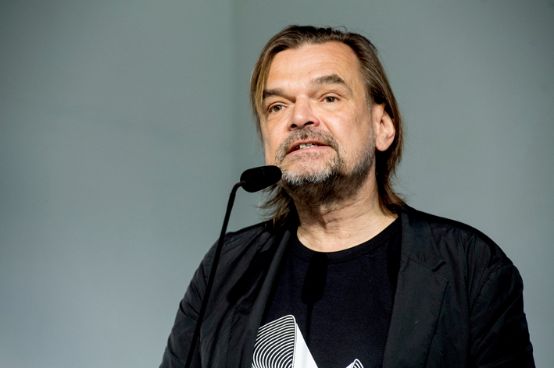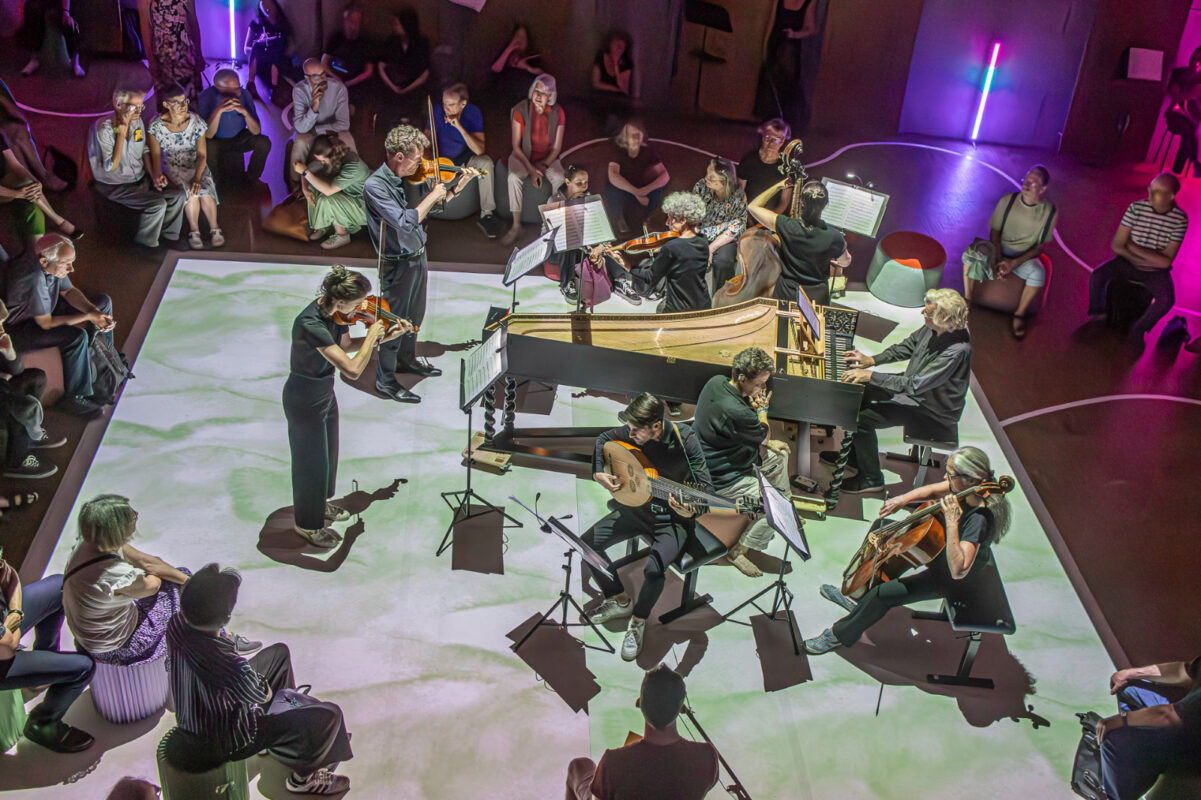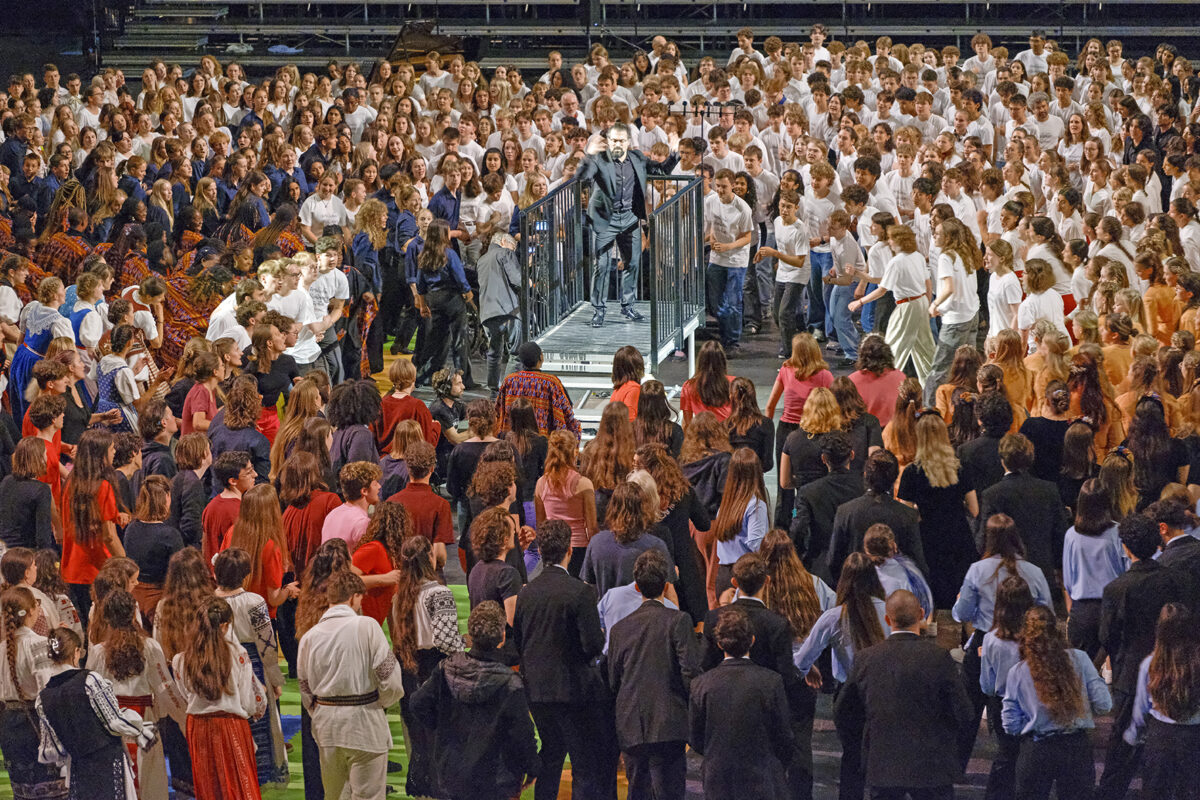Talking about life
Diedrich Diederichsen gave a lecture at the Zurich University of the Arts as part of the "Über Leben" conference, which focused on various aspects of artistic existence.

On the one hand fueled by an idealistic life plan, on the other hand driven by the need to earn a living: The three-day conference was dedicated to this contradiction, which is particularly virulent for creative artists About life At the end of April at the Zurich University of the Arts ZHdK. Artists from almost all disciplines presented their survival strategies and summarized their experiences; academics provided the theoretical underpinning for the topic. Certainly, an artistically and socially important topic and, above all, an explosive one for the university's students. The only strange thing was that there were no musicians among the speakers. As if sound artists were not affected by the problem.
With Diedrich Diederichsen, however, the organizers at least offered the German luminary of intellectual dissection of pop music par excellence. This compensated somewhat for those interested primarily in musical life, even if one would have liked to hear more about the intertwining of artistic concepts, self-promotion and self-marketing in serious music. However, Diederichsen is truly an expert in this field. Not only did he deliver in 2008 with Self-blood doping. Self-utilization, artistic romanticism, participation a standard work, but is also a gifted performer of himself. This can be seen not least in his constantly elaborate language: he is actually convincing in his refusal to use banalities and carries the style of sophisticated formulations in front of him like an advertising banner.
Talking about yourself
Appropriately, he gave his presentation Incomplete biography The book also takes the form of a self-critical autobiography. Diederichsen, who has worked as a cultural scientist, critic, journalist, curator, author and university lecturer, among other things, posed the questions of how he could adequately bear witness to what he does and is, what this reveals about himself and what dangers lie in such actions. He did this by reversing the usual distribution of roles, in which artists report subjectively about themselves and scientists objectively about others. In doing so, he came up with two basic strategies of self-narration:
One way in which he has inscribed his biography into existing contexts is by applying it to the school system. From this perspective, it is about the way in which lecturers define their role. Not only there, but especially at art colleges, it can often be observed that the lecturer stages himself as a rather random person standing in front of the class or the student, trying to deny the authority gap between himself and the students by ironizing it. As if it could be made to disappear by separating oneself from the function one performs. Not only is the attempt futile, the main problem with this strategy is that it removes personal responsibility. Unfortunately, Diederichsen did not offer any concrete solutions as to how things could be done better.
Diederichsen then presented the possibility of a "negative list" as an alternative form of life description. A list of what one does not, may not, has not done, including things such as: "I don't have a doctorate", "no children" or "no functional kitchen". In summary, this list presents an irresponsibility disguised as the opposite of bungling; nothing in it is directed towards any kind of future. He thus shared the attitude of monks, dandies, columnists and snobs or, more generally, diagnosticians. This was followed by a criticism of the diagnosticians of this world, who stated their condition but could not present a solution, as the diagnosis was made completely independently of any possible treatment. Diagnosticians had objectified themselves out of the world and could therefore no longer intervene, i.e. cure.
At this point, the two presented strategies of self-narration come together again, or rather the criticism of them. Both involve relativizing oneself. But, according to Diederichsen, you cannot get rid of your subjective entanglements with the world by objectifying them. You have to cultivate them, not negate them. In this respect, the lecture was a plea for a subjective approach to the world and, in a way, also a justification of Diederichsen's work. After all, it has always been characterized by a bluntly subjective point of view. His critiques were always also confrontations with his own aesthetic premises.
As an audience member, it has to be said that the music journalist certainly benefited more from the lecture than the budding artists in the room. Because as such, as Diederichsen himself points out, you have to be recognizable to the market and develop a signature style. This is not compatible with an intellectual attitude of refusal, as demonstrated by the "negative list".








